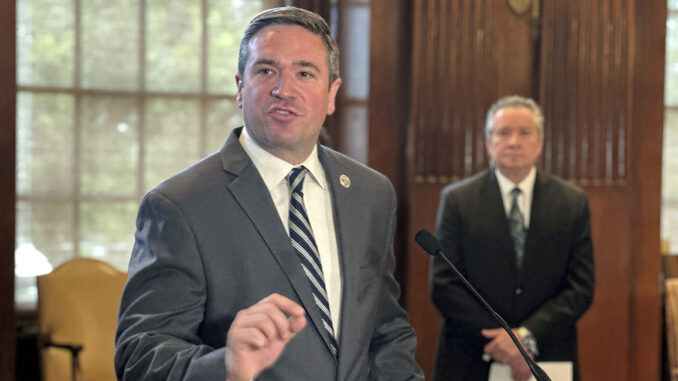

RALEIGH — Led by Missouri Attorney General Andrew Bailey, almost two dozen states have signed onto an amicus brief in support of North Carolina and West Virginia in their appeal to overturn a 4th Circuit ruling issued in April that directed the health plans in those states to cover sex reassignment procedures to plan members.
In addition to Missouri, states signing onto the amicus include Alabama, Alaska, Arkansas, Florida, Georgia, Idaho, Indiana, Iowa, Kansas, Kentucky, Louisiana, Mississippi, Montana, Nebraska, North Dakota, Ohio, Oklahoma, South Carolina, South Dakota, Texas, Utah, Virginia and Wyoming. All 23 states have Republican attorneys general.
“We appreciate the support nearly half of the states have shown by filing an amicus brief urging the U.S. Supreme Court to review the Fourth Circuit Court of Appeals’ decision,” North Carolina State Treasurer Dale Folwell said in a statement. “Our position remains unchanged. State governing bodies are best equipped to evaluate health care coverage that provides the greatest good to the highest number of people. They, and not the courts, are the proper place to make such decisions.”
Folwell, whose agency oversees the State Health Plan, filed a petition appealing the 4th Circuit’s 8-6 decision in Folwell v. Kadel to the U.S. Supreme Court on July 26.
The 4th Circuit’s April 2024 ruling sided with the plaintiffs that the State Health Plan’s refusal to cover sex reassignment surgeries violated the Equal Protection Clause. Folwell’s petition called the 4th Circuit ruling “seriously flawed,” and the state’s exclusion of gender care treatments, “does not draw any classifications based on any protected trait. It distinguishes between medical treatments.
“For decades, the North Carolina State Health Plan for Teachers and State Employees has chosen to exclude coverage for treatments ‘leading to or in connection with sex changes or modifications,’” Folwell’s petition states. “That exclusion is one of many in the Plan, which also excludes coverage for cosmetic services, experimental treatments, surgery for psychological or emotional reasons, and more. Each of those choices is designed to ensure that the Plan can provide the best possible coverage for all 740,000 of its members at a reasonable cost.”




